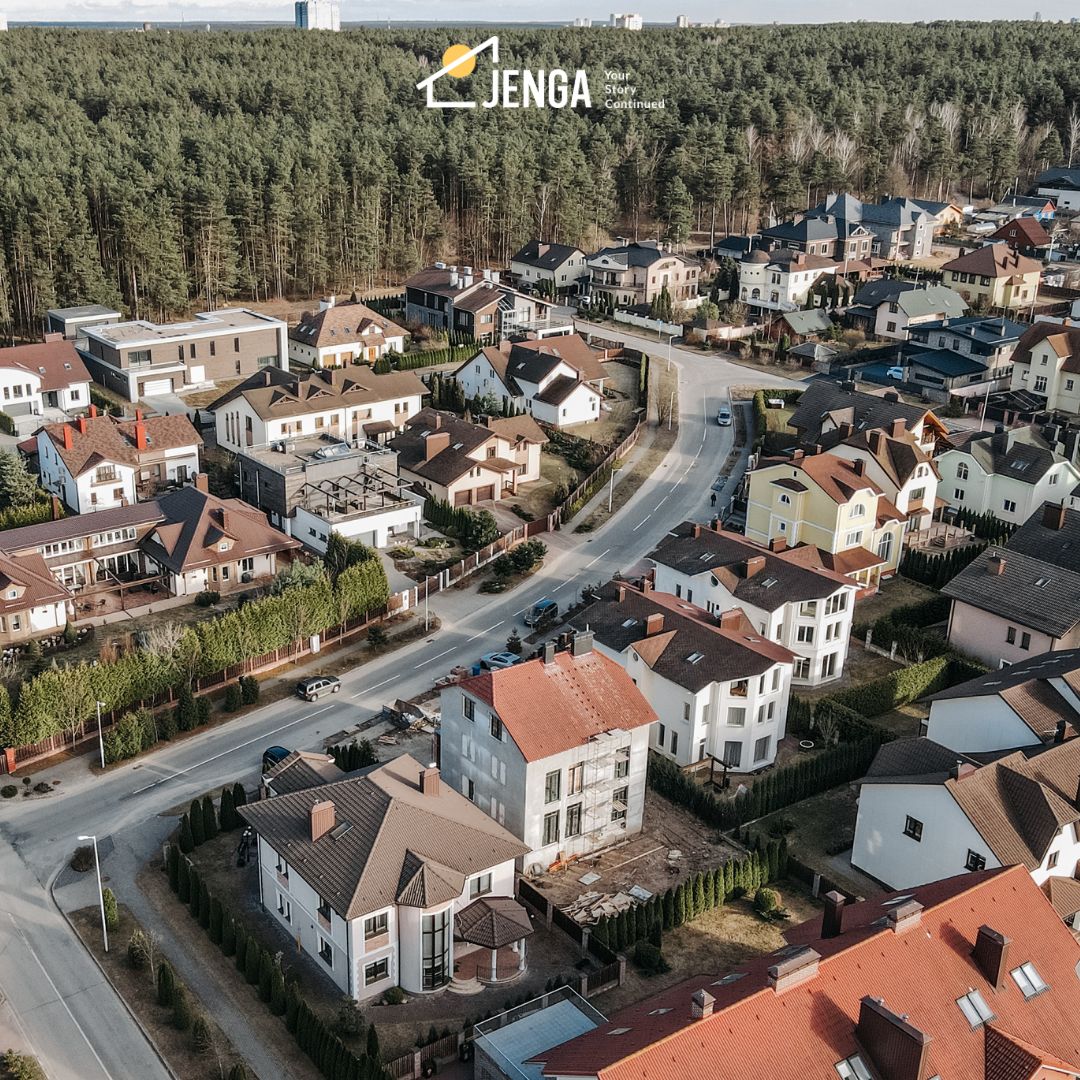The age-old question: suburbs or city? It’s a decision that weighs heavily on many, impacting everything from your commute to your social life. This blog dives deep into the pros and cons of both suburban living and city life, equipping you with the knowledge to make an informed choice that aligns with your lifestyle dreams.
Whether you crave the quiet hum of a cul-de-sac or the vibrant energy of a bustling downtown, we’ll explore the unique advantages and challenges of each option. So, buckle up and get ready to discover your ideal urban niche!
Why Choose Suburban Living?
Pros of Living in the Suburbs:
1) Lower Living Costs
Due to their distance from key landmarks, suburban properties in Canada can often be more budget-friendly than prime urban locations. To get a clearer picture of affordability differences in your target area, explore resources like the Canadian Real Estate Association (CREA) data or local market reports from reputable brokerages.
2) More Spacious and Better-Value Homes
Homes tend to be larger, boasting more bedrooms, bathrooms, and square footage compared to their urban counterparts. This translates to a more comfortable living environment, especially for families or those who crave dedicated workspaces or hobby rooms.
Additionally, property taxes and housing costs often run lower in the suburbs, making homeownership a more attainable dream for many.
3) Ideal for Raising a Family
Suburbs are often touted as havens for families. The tranquility of neighborhoods, with less traffic and noise compared to the city center, can provide a peaceful environment for children to grow up in. Spacious playgrounds and parks offer dedicated areas for kids to run, explore, and socialize.
Additionally, many suburbs boast good school systems, a critical factor for many families. Visit the Fraiser Institute to explore school rankings by location in Canada.
4) Peaceful and Quiet Environment with Nature and Green Spaces
Escape the concrete jungle and embrace nature in suburban communities. Enjoy nearby parks, lush gardens, and expansive green areas for leisurely walks, bike rides, or picnics with family and friends. In the suburbs, you can immerse yourself in a healthier and more active lifestyle.
5) Better Safety and Security
Suburban locations in Canada are often perceived as safe due to lower population density and a sense of community. While property crime rates may be lower in suburbs according to Statistics Canada data, it’s important to research specific areas to get a clearer picture.
6) Close Retail and Services
Most Surbabia neighborhoods boast convenient local retail centers, putting grocery stores, pharmacies, and everyday essentials within a short walk or drive. This proximity not only saves time on errands but also fosters a sense of community, as residents bump into familiar faces while picking up their morning coffee or grabbing a gallon of milk.
Also Read, ‘Who Can Own A Home in Canada’ here.
Cons of Living in the Suburbs
1) Commute and Transportation Challenges
Unlike urban areas, suburban regions often require reliance on personal vehicles, leading to longer commutes, traffic congestion, and added expenses.
2) Lack of Urban Amenities
While suburbs provide a tranquil lifestyle, they may lack the vibrant energy and variety of metropolitan amenities, like an active nightlife or a wide variety of gyms.
3) Shortage of Employment Opportunities
Particularly in smaller suburbs, residents might find themself commuting significant distances to reach major employment hubs in the city center. This can not only eat into valuable leisure time but also add stress and financial strain due to gas costs or public transportation expenses.
For individuals seeking a wider range of career options or those in specific industries, a more urban environment might offer a better fit.
Why Choose City Life?
Pros of City Living
1) Very Convenient
Cities are the ultimate convenience hubs. Forget long commutes – your office, grocery store, gym, and favorite restaurants are all likely within walking distance, biking distance, or easily accessible by a well-developed public transportation network.
This not only saves time and money spent on gas, but also fosters a spontaneous and active lifestyle. Craving a last-minute museum visit or catching a late-night comedy show? No problem – the city never sleeps, offering endless entertainment options right at your doorstep.
2) Great Diversity and Culture
Urban centers are vibrant melting pots, brimming with people from all walks of life. This translates to a rich tapestry of cultures, ethnicities, and backgrounds. Living in a city exposes you to a kaleidoscope of cuisines, traditions, and perspectives, broadening your worldview and fostering a sense of global connection.
From bustling ethnic enclaves with authentic restaurants to international festivals and cultural events, city life offers a constant opportunity to learn and grow.
3) More Professional Opportunities
Cities act as magnets for businesses and industries, attracting top companies and fostering a dynamic job market. This translates to a wider range of career options compared to suburban areas.
Whether you’re an aspiring entrepreneur, a seasoned professional seeking career advancement, or someone with a niche skillset, you’re more likely to find your dream job in a bustling urban center. Additionally, cities often offer higher salaries and greater potential for professional networking, opening doors to exciting career paths.
Also read, ‘Will Buying a Home Help my Credit Score,’ here.
Cons of Living in the City
1) High Cost of Living
City life comes with a hefty price tag. Rent, housing costs, groceries, and even entertainment tend to be significantly more expensive compared to suburbs.
Finding an affordable apartment can be a challenge, and everyday expenses can quickly drain your budget. This can be especially limiting for young professionals or families on a tight budget.
2) Limited Space and Privacy
Craving a sprawling backyard or a quiet home office? City living often means sacrificing space. Apartments are typically smaller, with less storage and limited outdoor areas. The constant hustle and bustle can also make it difficult to find moments of peace and quiet.
Privacy can be a challenge in densely populated areas, with noise from neighbors and a lack of personal space impacting your sense of tranquility.
3) Fast-Paced Environment and Stress
The city that never sleeps can wear you down. The constant stimulation, traffic congestion, and competitive atmosphere can contribute to feelings of stress and overwhelm. If you crave a slower pace of life and a chance to unwind, the relentless energy of a city might not be the best fit.
FAQ’s
Q: Is suburban living suitable for everyone?
A: Suburban living is a personal choice influenced by individual preferences, lifestyle, and priorities.
Q: How can I combat social isolation in the suburbs?
A: Actively engage in community events, clubs, and activities to establish connections with people.
Q: What should I prioritize when buying a suburban property?
A: Prioritize aspects such as access to quality schools, proximity to parks, a sense of community, and lower living costs.
Q: How can I prepare for a move to the suburbs?
A: Start planning your move early. Research neighborhood specifics, from job prospects to crime statistics, and read reviews from locals to gain useful information firsthand. Need a moving checklist? Grab our free 8-week checklist here.
Q: What benefits do suburban schools offer?
A: Suburban schools generally have more resources, smaller class sizes, and higher rates of parent involvement, providing quality education with a comprehensive range of extracurricular activities.
Q: Is suburban living suitable for families?
A: Yes, suburbia is ideal for families with its family-friendly environment, good schools, and proximity to local amenities, providing a relaxed and enjoyable way of life.
Q: What factors should I consider when deciding between City and Suburban Living?
A: Evaluate convenience, diversity, and professional opportunities in the city. For suburban living, focus on family-friendliness, space, privacy, and a robust community spirit.
Final Thoughts
The decision to settle in the suburbs or the heart of the city hinges entirely on your unique lifestyle. Each environment boasts distinct advantages, catering to different priorities. Whether you crave the convenience and energy of urban life or the peace and space of suburban living, the ideal choice aligns perfectly with your career goals, family situation, and personal preferences.
Ready to delve deeper into the world of Calgary real estate? Download our FREE Calgary Homebuyers Glossary Guide for a comprehensive breakdown of key terms and essential knowledge to navigate the buying process with confidence. This valuable resource empowers you to make informed decisions and find the perfect place to call home, wherever your heart desires!
For suburban homes in Calgary and surrounding areas, contact us today.





